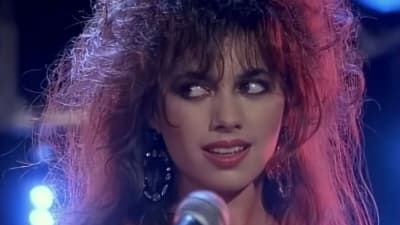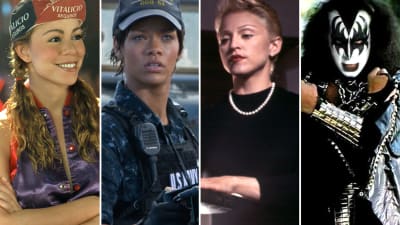- Home
- Quizzes
- My Quiz Activity
- Newsletters
- MY FAVORITES
- Add Sports/Teams
- SPORTS
-
NFL
- NFL Home
- Arizona Cardinals
- Atlanta Falcons
- Baltimore Ravens
- Buffalo Bills
- Carolina Panthers
- Chicago Bears
- Cincinnati Bengals
- Cleveland Browns
- Dallas Cowboys
- Denver Broncos
- Detroit Lions
- Green Bay Packers
- Houston Texans
- Indianapolis Colts
- Jacksonville Jaguars
- Kansas City Chiefs
- Las Vegas Raiders
- Los Angeles Chargers
- Los Angeles Rams
- Miami Dolphins
- Minnesota Vikings
- New England Patriots
- New Orleans Saints
- New York Jets
- New York Giants
- Philadelphia Eagles
- Pittsburgh Steelers
- San Francisco 49ers
- Seattle Seahawks
- Tampa Bay Buccaneers
- Tennessee Titans
- Washington Commanders
-
MLB
- MLB Home
- Athletics
- Arizona Diamondbacks
- Atlanta Braves
- Baltimore Orioles
- Boston Red Sox
- Chicago White Sox
- Chicago Cubs
- Cincinnati Reds
- Cleveland Guardians
- Colorado Rockies
- Detroit Tigers
- Houston Astros
- Kansas City Royals
- Los Angeles Angels
- Los Angeles Dodgers
- Miami Marlins
- Milwaukee Brewers
- Minnesota Twins
- New York Yankees
- New York Mets
- Philadelphia Phillies
- Pittsburgh Pirates
- San Diego Padres
- San Francisco Giants
- Seattle Mariners
- St. Louis Cardinals
- Tampa Bay Rays
- Texas Rangers
- Toronto Blue Jays
- Washington Nationals
-
NBA
- NBA Home
- Atlanta Hawks
- Boston Celtics
- Brooklyn Nets
- Charlotte Hornets
- Chicago Bulls
- Cleveland Cavaliers
- Dallas Mavericks
- Denver Nuggets
- Detroit Pistons
- Golden State Warriors
- Houston Rockets
- Indiana Pacers
- Los Angeles Clippers
- Los Angeles Lakers
- Memphis Grizzlies
- Miami Heat
- Milwaukee Bucks
- Minnesota Timberwolves
- New Orleans Pelicans
- New York Knicks
- Oklahoma City Thunder
- Orlando Magic
- Philadelphia 76ers
- Phoenix Suns
- Portland Trail Blazers
- Sacramento Kings
- San Antonio Spurs
- Toronto Raptors
- Utah Jazz
- Washington Wizards
-
NHL
- NHL Home
- Anaheim Ducks
- Boston Bruins
- Buffalo Sabres
- Calgary Flames
- Carolina Hurricanes
- Chicago Blackhawks
- Colorado Avalanche
- Columbus Blue Jackets
- Dallas Stars
- Detroit Red Wings
- Edmonton Oilers
- Florida Panthers
- Los Angeles Kings
- Minnesota Wild
- Montreal Canadiens
- Nashville Predators
- New Jersey Devils
- New York Islanders
- New York Rangers
- Ottawa Senators
- Philadelphia Flyers
- Pittsburgh Penguins
- San Jose Sharks
- Seattle Kraken
- St. Louis Blues
- Tampa Bay Lightning
- Toronto Maple Leafs
- Utah Hockey Club
- Vancouver Canucks
- Vegas Golden Knights
- Washington Capitals
- Winnipeg Jets
- NCAAF
- NCAAM
- Olympics
- Boxing
- Entertainment
- Lifestyle
- Golf
- MMA
- Soccer
- Tennis
- Wrestling
- Sports Betting
- More Sports
- RESOURCES
- My Account
- YB on Facebook
- YB on Twitter
- YB on Flipboard
- Contact Us
- Privacy Policy
- Terms of Service
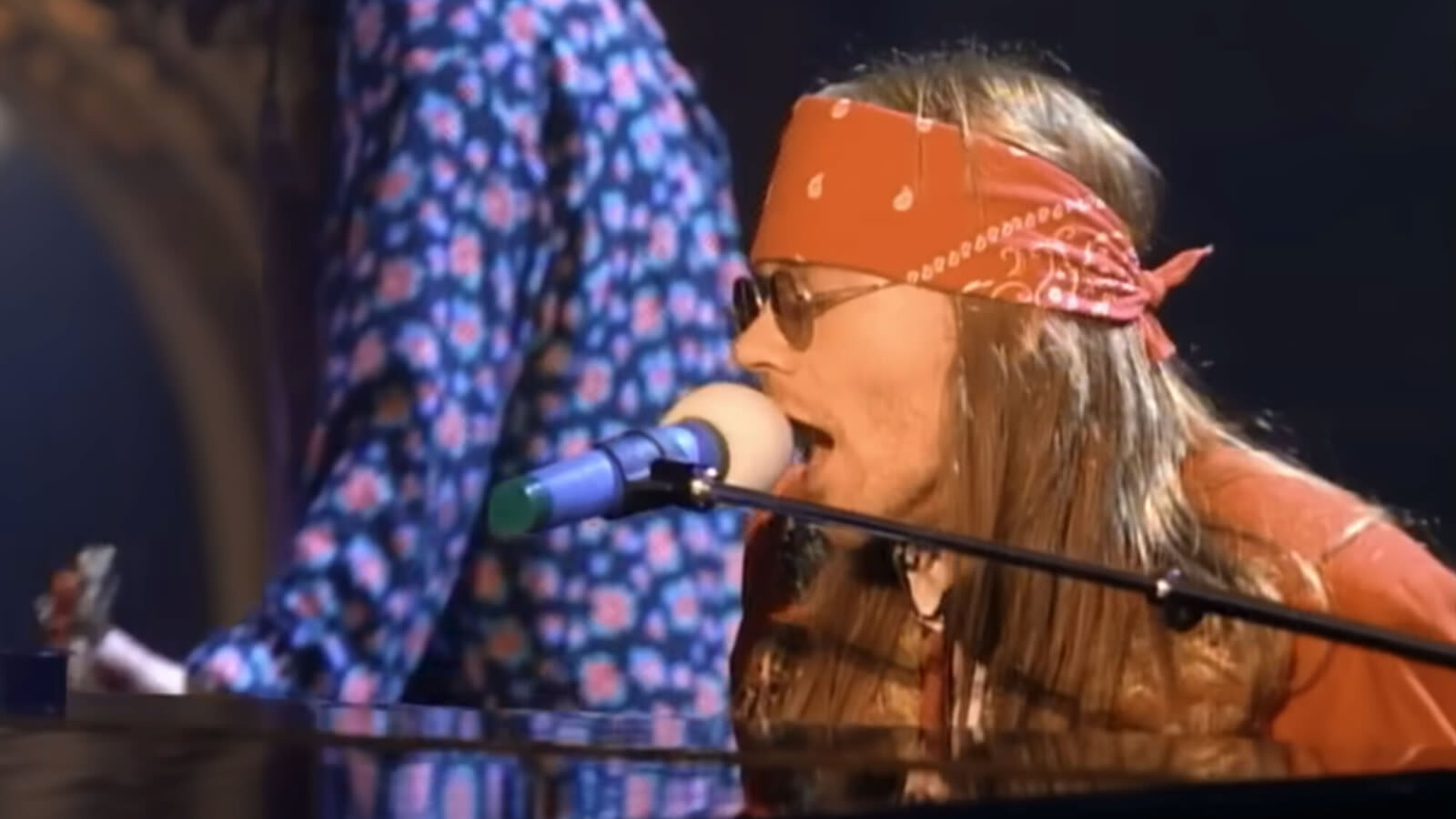
Some of the hardest rock acts of all time are known for their slower, more melodic ballad work. But they still keep the volume at a respectable level.
Here's out list of 25 great power ballads. And, no, "Purple Rain" is not power ballad.
25. "I'll Never Let You Go," Steelheart
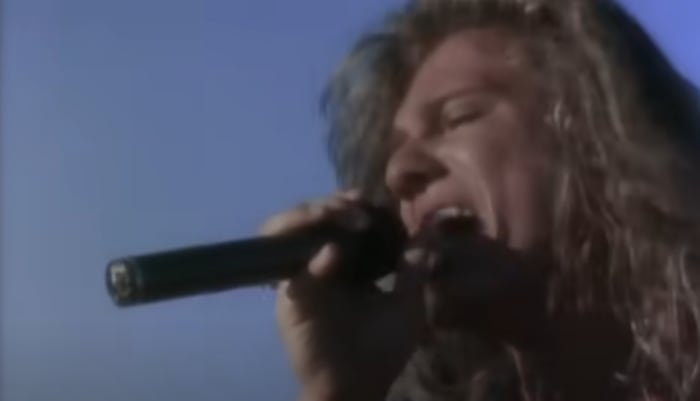
Glam/hair metal fans likely remember this undeniable, sappy power track from Steelheart, an East Coast-based outfit that essentially became a one-hit wonder. Thanks to the piercing and all-ranging voice of highly underrated vocalist Miljenko Matijevic, "I'll Never Let You Go" made it all the way to No. 23 on the Billboard Hot 100 chart. Sadly for Steelheart, its biggest success came at the end of the genre's run of mainstream dominance.
24. "High Enough," Damn Yankees

This short-lived supergroup that featured Ted Nugent, Jack Blades (Night Ranger) and Tommy Shaw (Styx) made two records. Its 1990 self-titled debut featured this hefty power ballad that's among some of the heaviest material of any song on this list. Nugent shreds, and the harmonization between Blades and Shaw is a shining example of two severely underrated vocalists. "High Enough" peaked at No. 3 on the Billboard Hot 100, making it the band's biggest hit from that standpoint.
23. "Close My Eyes Forever," Lita Ford and Ozzy Osbourne
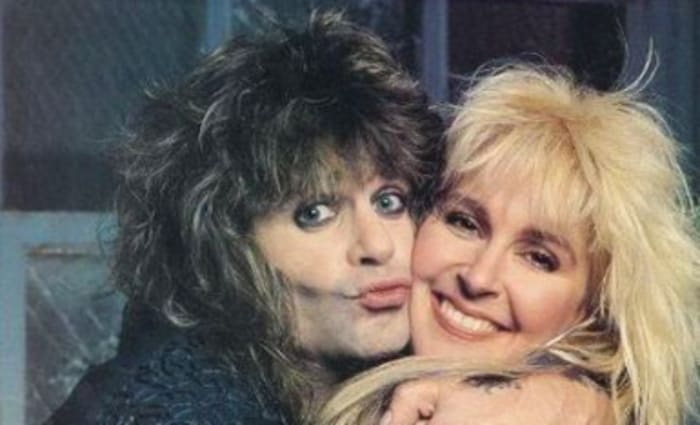
Throughout his legendary career with Black Sabbath and as a solo artist, Ozzy delivered some notable power ballads ("Goodbye to Romance," Road to Nowhere," "Mama, I'm Coming Home," "See You on the Other Side"), but this mega-popular duet with fellow rock legend Lita Ford remains one of the classic ballads of the 1980s hard rock/metal era. The song peaked at No. 8 on the Billboard Hot 100, making it Ford's highest charting single.
22. "Don't Know What You Got (Till It's Gone)," Cinderella

Among all the hair/glam metal bands of the 1980s, Cinderella was among the few who stood for its musical abilities. Led by raspy-voiced frontman/guitarist Tom Keifer, Cinderella was heavily steeped in the blues, and this severely underrated number from 1988's Long Cold Winter album is an example of all that. Cinderella broke out two years earlier with perhaps the more well-known power ballad "Nobody's Fool," but the more mature "Don't Know What You Got (Till It's Gone)" remains its biggest hit on the Hot 100 (peaking at No. 12).
21. "Love Song," Tesla (1989)

One of the more underrated bands of the 1980s, Tesla, which is still going strong today, hit it big (reaching No. 10 on the Hot 100) with this ballad from 1989's The Great Radio Controversy. That essentially earned the Sacramento five-piece some mainstream love, which grew larger with their acoustic cover of "Signs" soon after. Tesla always had an dirtier, more raw sound than its contemporaries, and "Love Song" shows that softer side, complete with Jeff Keith's raspy, Marlboro-tinged voice at its best.
20. "Silent Lucidity," Queensryche

Queensryche was among the heaviest, most melodic bands of the 1980s, while often categorized within the realm of progressive rock and metal. However, what's likely the band's most well-known hit, like others on this list, was the dreamy, Pink Floyd-esque "Silent Lucidity." From 1990's massively popular Empire album, "Silent Lucidity" was a top-20 hit, in heavy rotation on MTV and even earned a Grammy Award nomination for Best Rock Song and Best Rock Vocal Performance by a Duo or Group.
19. "Against All Odds (Take a Look at Me Now)," Phil Collins

Not all power ballads are associated with the hair metal movement of the 1980s. This Collins offering from 1984 and the film Against All Odds, starring Jeff Bridges, Rachel Ward and James Woods, is one of the biggest hits of the legendary musician's career. It was a No. 1 single in multiple countries, including the United States, where it topped the Billboard Hot 100. In fact, it still remains a staple of adult contemporary radio and dentist-office, waiting-room listening.
18. "Always," Bon Jovi
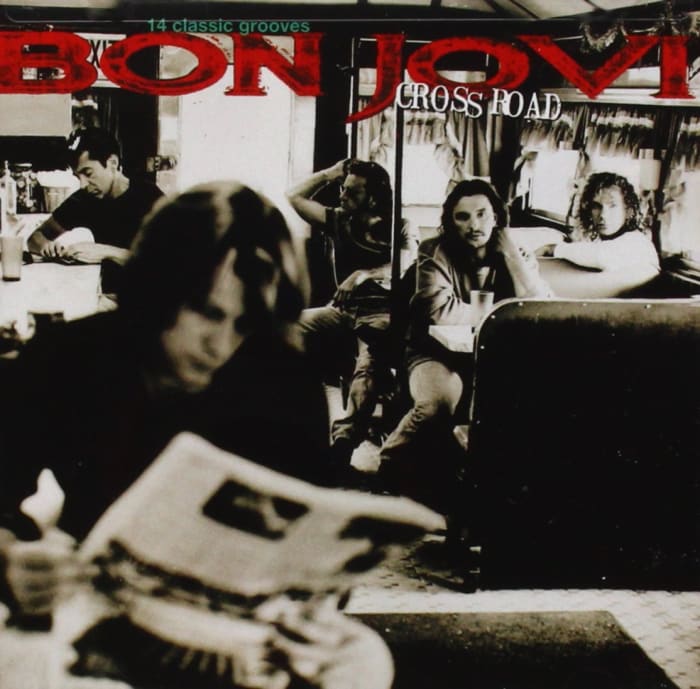
The good thing about a greatest hits album for a band is that it often offers an opportunity to include a new single. That was the case with Bon Jovi's 1994 Cross Road package, which featured "Always," a new standout ballad that peaked at No. 4 on the Billboard Hot 100. It was perfect for mainstream rock radio, and was the beginning of the band's move toward a more adult contemporary sound. The video, which featured established up-and-coming young Hollywood actors Jack Noseworthy, Keri Russell, Carla Gugino and Jason Wiles, was an MTV regular.
17. "Heaven," Warrant

Arguably the most recognized song from this popular hair metal staple from the late 1980s and into the 1990s. Taking that argument further, "Heaven" might be the quintessential power ballad of that particular genre of rock. From the band's smash debut Dirty Rotten Filthy Stinking Rich (1989), the sappy power track went all the way to No. 1 on the Billboard Hot 100, and it could very well be the defining moment of the legacy of Warrant frontman and the song's sole writer, Jani Lane.
16. "Angel," Aerosmith

Aerosmith's 1987 comeback record Permanent Vacation essentially reintroduced the band to a new generation of fans, and MTV certainly played a big part. Not to mention that pop rock songwriting legend Desmond Child had something to do with the band's resurgence, co-penning such hits as "Angel," a top-five single. Beginning with this schlocky, made-for-the-1980s makeout sessions, Aerosmith's musical arsenal became littered with power ballads, including the unnecessary "I Don't Want to Miss a Thing," some 10 years later.
15. "Lady," Styx
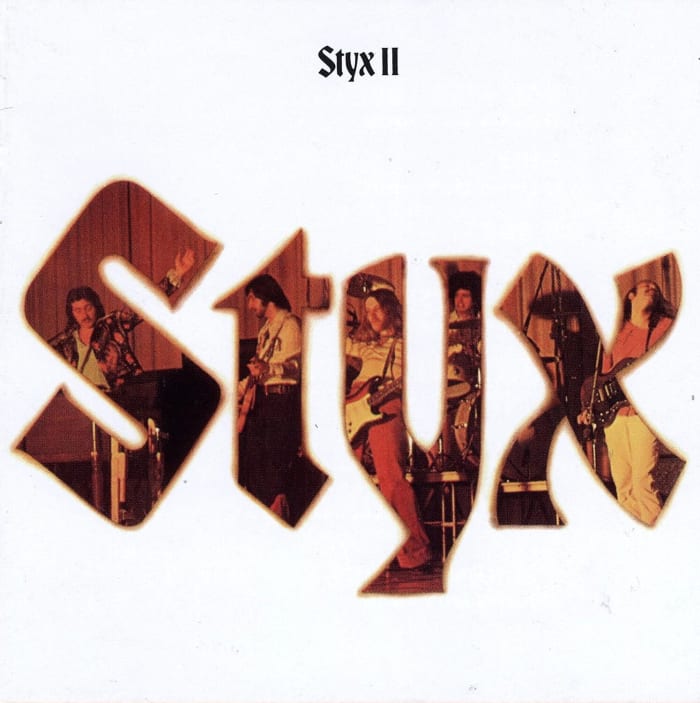
Let's go back to 1973 and celebrate what should be considered one of the great ballads of all time. And, the perfect example of the true power ballad. Poignant, melodic and full of electric bombast to balance things out, "Lady," from the band's second studio LP, checks all the boxes. A local hit in the band's hometown of Chicago, the song gained international prominence (peaking at No. 6 on the Billboard Hot 100) after Styx joined A&M Records one year later.
14. "Heaven," Bryan Adams

According to Adams' longtime writing partner Jim Vallance, this popular 1983 hit was written for the little-remembered movie A Night in Heaven. In fact, "Heaven" should be the most positive aspect of the John G. Avildsen romantic drama starring Christopher Atkins, a student who moonlights as a stripper, and Lesley Ann Warren, a professor. Digging deeper into the sappy number, which reached No. 8 on the Hot 100, Vallance noted that the song was highly influenced by the power ballads from Journey, with whom Adams toured with at the time.
13. "When I See You Smile," Bad English

Bad English was the 1980s supergroup that included Journey's Neal Schon and Jonathan Cain, and popular vocalist John Waite. The band teased their hair and broke big with this schlocky power ballad, an MTV favorite and car ride sing-a-long staple that made it all the way to the top of the Billboard Hot 100 in fall 1989. The band's reign was rather short-lived, but the legacy of "When I See You Smile" lives on in power ballad lore.
12. "I Remember You," Skid Row

From the band's smash 1989 self-titled debut album, "I Remember You" is another textbook example of a pop metal power ballad. In this case, however, it also showcased the range and excellence of Sebastian Bach's piercing voice. It was a top-10 hit for Skid Row, which remains harder, heavier and raunchier in sound than the other hair metal acts it was lumped in with during the late 1980s. It's a solid track that perhaps is even a little underrated in the realm of power ballad greatness.
11. "I Want to Know What Love Is," Foreigner
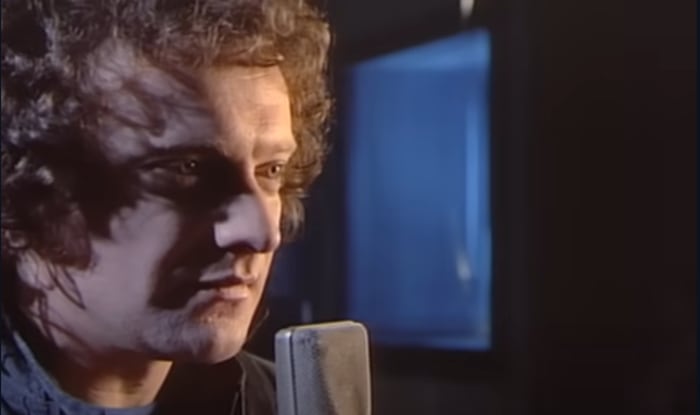
Foreigner was an FM-rock radio staple during the late 1970s and early '80s thanks to hits like "Hot Blooded," "Feels Like the First Time," "Jukebox Hero" and "Urgent." However, the band is likely best known to casual mainstream rock fans for this beautifully done poignant ballad, complete with a choir backing. "I Want to Know What Love Is" topped the Billboard Hot 100 at the time, and continued to reside on various charts well into the 2000s.
10. "Keep on Loving You," REO Speedwagon

It can be argued that this 1980 single was the moment that REO Speedwagon went from a hard-driving Midwest rock outfit to a ballad-focused adult contemporary/soft rock act that was welcomed by the masses. However, Gary Richrath's stellar guitar work stands out on this song of moving on from a failed relationship that hit No. 1 on the Billboard Hot 100. It was also REO's first top-50 hit, and remains a staple of light rock fare to this very day.
9. "Dream On," Aerosmith

We already touched on one of Aerosmith's power ballads from the 1980s, but the band might be best known, at least to casual rock fans, for this true classic from its early days. Showcasing the magic of Steven Tyler's voice, as well as the legendary singer's work on the electric harpsichord and mellotron, "Dream On" was the highlight of the band's 1973 debut record. Though not a big hit at the time, it's grown into an iconic classic rock track, and arguably is the signature song from these Hall of Fame legends.
8. "I'd Do Anything for Love (But I Won't Do That)," Meat Loaf

Technically, most of the catalog from Meat Loaf and songwriter Jim Steinman can fall under the power ballad category. Yet, when it comes to true no-holds-barred, over-the-top balladry bombast, this 1993 hit (No. 1 on the Hot 100) from his Bat Out of Hell II: Back into Hell album reigns supreme. The album version clocks at 12:01, but the journey is so much worth the time. It's a roller coaster of musical emotion and cheesy lyrics that re-introduced Meat Loaf to the masses and another generation of rock fans.
7. "Home Sweet Home," Motley Crue

Here's one song that proved even rock bad boys have a softer side. One of the great songs of the road and touring life, "Home Sweet Home," released on 1985's Theatre of Pain album, turned Motley Crue into international stars, even though the track barely cracked the top 100. It helped that MTV put the video on heavy rotation, which, in turn, opened the door for other 1980s hair metal bands to adopt the formula of a releasing a power ballad to attract mainstream attention — especially from the ladies.
6. "November Rain," Guns N' Roses
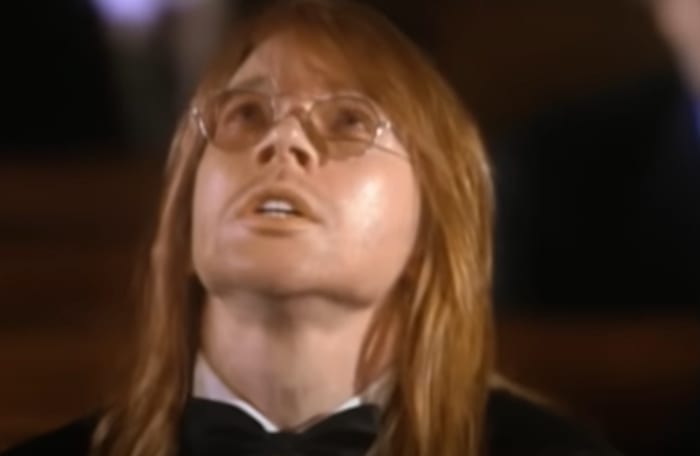
Part of the so-called song trilogy with predecessor "Don't Cry," and followed by "Estranged," "November Rain" is an example of how the band — specifically, Axl Rose — was becoming more grandiose than desired. Hard rock ballads don't get more over-the-top than this nearly nine-minute piece that reached No. 3 on the Billboard Hot 100. The popular music video was even more dramatic — remember the guy diving into the wedding cake? — featuring Rose's girlfriend at the time, model Stephanie Seymour. Rose's focus on writing and producing more highbrow tracks like this proved to be part of his growing rift with bandmates Slash and Duff McKagan, who preferred a more straightforward rock approach.
5. "Total Eclipse of the Heart," Bonnie Tyler

It's actually somewhat questionable whether this epic 1983 tune, once again penned by the underrated Jim Steinman, is actually considered a power ballad, mostly because it seems to be so much more with that wall-of-sound vibe and over-the-top schlock (complete with one of the most gratuitously '80s music videos ever). "Total Eclipse of the Heart" made Australia's Tyler a household pop rock name and earned her a Grammy Award nomination. This No. 1 hit remains one of the signature songs of early '80s mainstream music and a piece of pop culture iconography.
4. "Faithfully," Journey

By the time the Frontiers album came out in 1983, Journey had solidified itself as an arena rock giant, and power ballads were part of its repertoire. "Faithfully" continued that trend. A token song about a musician's life on the road and the strain it can put on a relationship, the track reached No. 12 on the Billboard Hot 100 chart. Over the years, "Faithfully" has enjoyed significant success, receiving consistent airplay and spanning mediums, such as television — most notably on the NBC hit Glee.
3. "Sister Christian," Night Ranger

Night Ranger's career-defining hit was all the rage upon its 1984 release and remains a presence three decades later, featured in such Hollywood favorites like Boogie Nights and Air. This is true power ballad greatness — amped-up guitar work, thundering drums and, of course, lyrics that don't always make sense (what exactly does it mean to be "motoring"?). This sing-along favorite made it up to No. 5 on the Billboard Hot 100 and is an example of a true 1980s musical guilty pleasure.
2. "Every Rose Has Its Thorn," Poison

The epitome of the hair metal genre, Poison was an unabashed, unadulterated example of all that was fun and excessive about this particular rock scene during the 1980s. Poison had its share of anthems, but one of the most popular ballads of the era was "Every Rose Has Its Thorn," from 1988's Open Up and Say... Ahh!. Frontman Bret Michaels' tale of finding out he was being cheated on was Poison's lone single to top the Billboard Hot 100. It proved that even rock-and-roll fun boys can still have their hearts broken.
1. "Open Arms," Journey

Various rock historians and professional music critics consider "Open Arms" to be the birth of the mainstream power ballad. When Jonathan Cain and Steve Perry, the band's principal songwriters at the time, brought "Open Arms" to the table, guitarist Neal Schon wondered what his role in the song would be. They found a place for him, and the rest is legendary power ballad history. The song was a slow-dance staple at junior high and high school dances during the 1980s. The Escape closer reached No. 2 on the Hot 100.
A Chicago native, Jeff Mezydlo has professionally written about sports, entertainment and pop culture for parts of four decades. He was an integral member of award-winning sports sections at The Times of Northwest Indiana (Munster, Ind. ) and Champaign (Ill
More must-reads:
- 22 underrated lead singers who deserve way more love
- 20 famous actors you didn’t know can sing
- 20 bands we'd like to see reunite
- Musicians in their prime who just stopped making music
- The greatest songs that run 10 minutes or more
Customize Your Newsletter
 +
+
Get the latest news and rumors, customized to your favorite sports and teams. Emailed daily. Always free!
PRIVACY POLICY EDITORIAL POLICY CONTACT US
ABOUT YARDBARKER TERMS OF SERVICE
Use of this website (including any and all parts and
components) constitutes your acceptance of these
Terms of Service and Privacy Policy.
This site is for entertainment purposes only.
There is no gambling offered on this site.
Gambling Problem? Call 1-800-Gambler.




